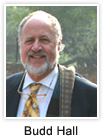 The writings associated with our UNESCO Chair refer often to the co-creation of knowledge as part of a community based research or a community university research partnership process. But the co-construction of knowledge also happens within the context of curriculum development in higher education. Beginning the first week of January, 2016, I have begun a teaching collaboration for an undergraduate course in the School of Public Administration at the University of Victoria called Refugees, Democracy and Action: International Community Development Through Activism. This course has been designed and is being facilitated with participation from colleagues in Victoria’s Intercultural Association (ICA), the major refugee and immigrant service agency in our city. The elements of the course include: participation by ICA leadership in providing design advice and content, presentations by academic specialists, skills development in aspects of community development with an emphasis on the role of the arts in community development, participation in a final artistic performance linked to Refugees and The World We Want, student involvement in research on local refugee issues, student involvement in two video projects one associated with the schooling of the children of recent immigrants and one connected with documenting the impact of the course itself.
The writings associated with our UNESCO Chair refer often to the co-creation of knowledge as part of a community based research or a community university research partnership process. But the co-construction of knowledge also happens within the context of curriculum development in higher education. Beginning the first week of January, 2016, I have begun a teaching collaboration for an undergraduate course in the School of Public Administration at the University of Victoria called Refugees, Democracy and Action: International Community Development Through Activism. This course has been designed and is being facilitated with participation from colleagues in Victoria’s Intercultural Association (ICA), the major refugee and immigrant service agency in our city. The elements of the course include: participation by ICA leadership in providing design advice and content, presentations by academic specialists, skills development in aspects of community development with an emphasis on the role of the arts in community development, participation in a final artistic performance linked to Refugees and The World We Want, student involvement in research on local refugee issues, student involvement in two video projects one associated with the schooling of the children of recent immigrants and one connected with documenting the impact of the course itself.
The pedagogical or learning framework for the course is what we refer to as a pedagogy of hope. Our learning framework is influenced by Indigenous learning principles, specifically Lil’wat First Nations learning principles as articulated by Lil’wat scholar Dr. Lorna Williams, the philosophy of Paulo Freire and the work of UVic scholars Kathy Sandford and Tim Hopper. Our students take responsibility for their own learning and the learning of others in the group. Grades, required by the University of Victoria, are allocated according to learning contracts. Students will be given a B+ if they complete the basic assignments, take part in one of the experiential activities and participate actively in the course. If they wish to undertake additional assignments, their grades can be increased.
We will be monitoring this experimental course over the coming 12 weeks. It is not revolutionary, but it is dramatically different from the way most courses at our university are constructed. It may be undesirable for all courses to be developed in this way, but as we move towards recognising the legitimate knowledge to be found in community organisations and structures and struggle to deepen the impact of knowledge democracy in our institutions of higher education, community based course development is an approach worth examining.
For further information and a copy of the syllabus bhall@uvic.ca




